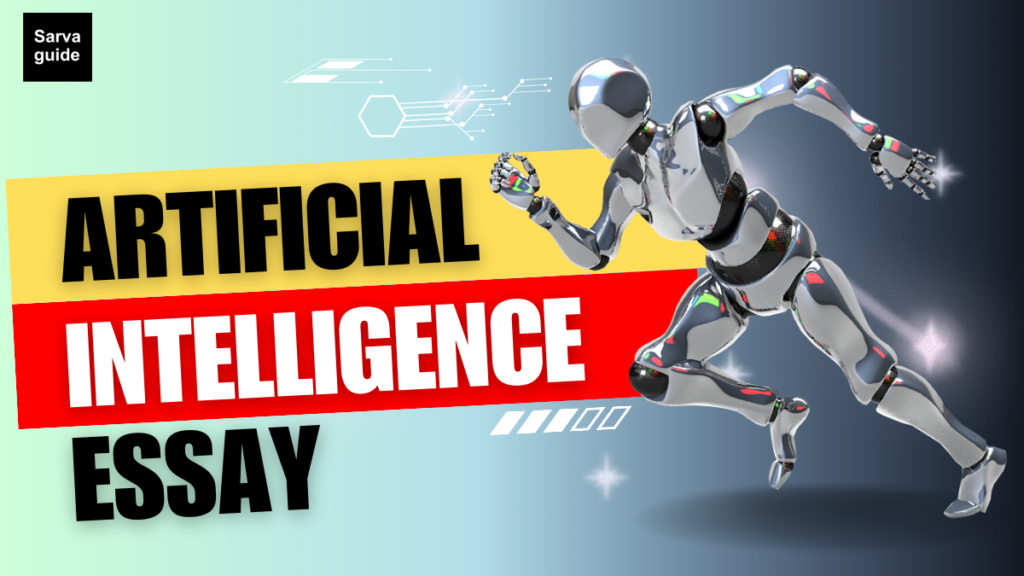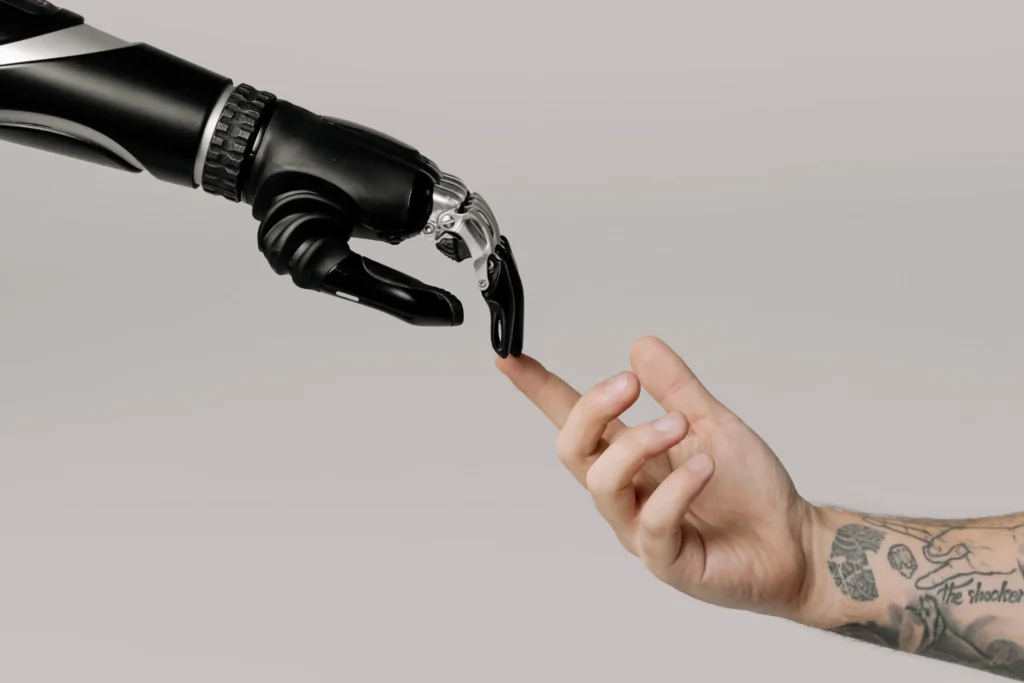|
Getting your Trinity Audio player ready...
|

The Evolution of Artificial Intelligence: An Informative Essay
Artificial Intelligence is the intelligence of machines with which they can perform different tasks with the help of humans. With the aid of A. In machines, they can learn how to solve problems, think about things, etc. Artificial intelligence, for example, is imitating human intelligence using machines. In the world of technology, Artificial Intelligence is evolving quickly day-to-day, and there is a belief that within the next few years, Artificial Intelligence will alter the human experience dramatically and will likely solve all the crises of the world by sorting out the most pressing issues.
How we live in the modern day and age largely depends on computers. It’s nearly impossible to imagine existence without computers. Computers are essential in every aspect that we do in our everyday lives. It is, therefore, crucial to create computers that are intelligent enough to make our lives simple. Artificial Intelligence is the theory and research of computers that mimic the human mind and senses, including vision, speech recognition decisions, translation, and decision-making between different languages. Artificial Intelligence has created an unprecedented change in the realm of technology.
Artificial Intelligence Applications
AI is extensively used in the world of healthcare. Companies are working on tools that provide quick diagnosis. Artificial intelligence would be able to perform surgeries on patients without human supervision. The surgical procedures that use technology are already being carried out.
Artificial intelligence would save a large amount of our time. The use of robots will lower the need for human labor. In industries, for instance, robots are employed, which has helped save a lot of human time and effort.
In education, AI is a possibility to prove extremely effective. AI can provide innovative methods for teaching students using which students can understand the concepts more effectively.
Artificial Intelligence is the future of innovative technology, and we can utilize it in various areas. It can, for instance, be utilized in the military sector, the industrial sector, automobiles, and so on. In the years ahead, we can expect to see a variety of applications for AI since this technology continues to evolve each day.
Marketing Artificial Intelligence provides the most comprehensive knowledge of consumers and potential clients for marketers, allowing them to present data at the appropriate time. With AI solutions, marketers can tweak their strategies and strategies.
Agriculture AI technologies can detect pests, plant diseases, and poor nutrition for plants. With the aid of AI, farmers can analyze the weather and temperature conditions, as well as the water consumption and conditions of the soil.
Banking: Fraudulent activities are easily detected by AI solutions. AI bots, as well as digital payment advisers, could ensure a high-quality service.
Health care: Artificial Intelligence can surpass human cognitive abilities regarding the evaluation, diagnosis, and complexity of medical information.
Shop Now
History of Artificial Intelligence
Artificial intelligence might appear to be a relatively new technology, but if you conduct a little research, its roots will be apparent in the past. The source of the AI concept is Greek Mythology; it is claimed that the ideas of AI were utilised.
Artificial neural networks were first proposed around 1943 by Warren McCulloch and Walter Pits. In 1950, a paper on AI came out by Alan Turing which was titled “Computer Machinery and Intelligence. The phrase Artificial Intelligence was invented in 1956 by John McCarthy, who is considered the father of Artificial Intelligence.
To conclude, we could affirm we believe that Artificial Intelligence will be the future of humanity. According to experts, we cannot dissociate ourselves from this technology because it will be an integral aspect of our lives soon. AI will transform our way of living in the present. This technology could be revolutionary as it could transform our lives.
Branches of Artificial Intelligence:
Knowledge Engineering
Robotics
Natural Language Processing
Types of Artificial Intelligence
Artificial Intelligence is classified into two categories based on its capabilities and functions.
Artificial Intelligence Type-1
Artificial Intelligence Type-2
Artificial Intelligence Type-1
The narrow AI (weak AI) aims to accomplish a particular task using intelligence. It is called weak AI due to its inability to exceed its capabilities. They train it to accomplish the task it was designed to do. Examples of Narrow AI include the recognition of facial features (Siri for Apple phones), Speech recognition, as well as image recognition. IBM’s Watson supercomputer, autonomous cars playing chess, and solving equations are just a few of the instances showing weak AI.
General AI (AGI or strong AI) is a system that can accomplish nearly all cognitive tasks with the same efficiency as humans. The most important feature of general AI is creating a system that can think like a human. Many researchers’ long-term objective is to build AI that can think like humans.
Super AI Super AI: Super AI is an artificial intelligence in which machines can surpass human intelligence and do any task of cognitive ability better than human brains. The primary characteristics of a strong AI are the capacity to think about, reason, and solve puzzles, as well as make judgments and plan and communicate by itself. The creation of powerful AI could be the largest technological advancement in the history of humankind.
Artificial Intelligence Type-2
Reactive machines: These machines are the most basic type of AI. These AI systems concentrate on current events and react according to the best actions. They do not keep information for future actions. IBM’s”deep blue” system, as well as Google’s Alpha, Go, are two examples of machines that are reactive.
A limited memory: They keep past or present memories for a limited time. Examples are self-driving automobiles. They can store data to determine the speed of the road and distances of nearby vehicles.
Theories of Mind: These systems recognize emotions, beliefs, and needs as humans do. These machines haven’t yet been created; researchers’ ongoing objective is to develop one.
Self-awareness: Self-awareness Artificial Intelligence is the next frontier of AI. The machines can outsmart the human race. If they are developed, they could bring about an end to the human race.
Conclusion
Artificial intelligence will bring a major revolution in the development of humanity. Human civilization will thrive through the development of human intelligence via artificial intelligence as long as we can keep the technology useful.



